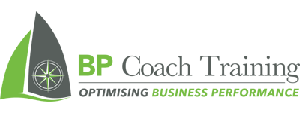Have you had a coaching conversation with an employee which created some momentary mental discomfort? Confusion? Or even an emotional outpour? What do you do in such situations?
I had the pleasure of meeting and interacting with Dr Marcia Reynolds – MCC, doctorate in Organizational Psychology and author of “The Discomfort Zone : How Leaders turn difficult conversations into breakthroughs”. Let me share some practical takeaways which you can adopt in the Corporate/Business environment.
Discomfort Zone
Firstly, recognise that in order to define who we are and make sense of the world around us, our brains have constructed a set of rules (beliefs, perspectives, expectations, assumptions, etc) which we strongly protect and surround with a protective barrier. During difficult conversations when this set of rules is being challenged, the protective barrier is broken causing discomfort, confusion or uncertainty in the coachee.

In the brain research done by Dr Reynolds, she found this moment of uncertainty to be necessary for behavioural learning to occur. Hence, as Leaders/Coaches, this is a great moment to facilitate the shift/growth in the coachee for a breakthrough!
How do you Listen? What do you Listen for? How do you respond to the coachee?

- Listen with an Open Mind, Heart and Gut
- Be curious & non-judgmental (open mind)
- Be compassionate (open heart)
- Be courageous. Stay comfortable with the discomfort in conversations (open gut)
- Listen for the Unsaid, besides the words
- What are the coachee’s assumptions, beliefs, desires, disappointments or fears?
- What emotions are coming thru’?

- What are the coachee’s assumptions, beliefs, desires, disappointments or fears?
- What emotions are coming thru’?
- Clarify, Reflect and Explore with powerful Questions, to facilitate the shift/growth
- Summarize/paraphrase what you are hearing or sensing from the coachee including the said, unsaid and emotions
- Ask powerful questions to explore the desires and fears which may be affecting the coachee’s actions or inaction. Help reveal any blind spots
- Have the coachee make a plan or commitment to effect the change

What’s your experience with difficult conversations?
Eng Neo, Executive Coach (www.bpcoachtrain.com)
Contact us: info@bpcoachtrain.com




